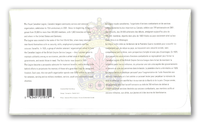
| Name | Value |
|---|---|
| Date of Issue | November 11, 2001 |
| Year | 2001 |
| Quantity | 3,000,000 |
| Denomination |
47¢
|
| Perforation or Dimension | 12.5 x 13 |
| Printer | Canadian Bank Note Company, Limited. |
| Postal Administration | Canada |
| Condition | Name | Avg Value |
|---|---|---|
|
M-NH-VF
|
Mint - Never Hinged - Very Fine | View price |
|
U-VF
|
Used - Very Fine | View price |




PEACE IN OUR TIME
After the First World War or "The Great War" as it was then known, some 560,000 Canadians returned home with little or no security, work skills or job opportunities. To assist their return to civilian life, The Great War Veterans Association of Canada was formed in 1917. This association and many others that sprang up were ill-equipped to deal with government and to affect any real change. In 1926 these groups came together to form a united front as The Canadian Legion of the British Empire Service League. They were now able to secure financial and medical assistance to those who needed it as well as to give "returned men" a sense of comradeship.
BROTHERS IN ARMS
Now able to initiate change and push for better conditions for veterans, the Canadian Legion had 20,000 members in 800 branches across Canada and one in Spokane, Washington by the end of 1926. In 1927 the Legion became the sole distributor of Armistice Day poppies, and in the Great Depression of the 1930s played a major part in offering rehabilitation and finding work for veterans. The Legion also sought to reorganize the pensioners relief system. In 1936, the Canadian Legion was among those honoured by King Edward VIII who unveiled the Vimy Memorial in France. A total of 6,000 veterans and their families travelled to the ceremony, making what became known as the Vimy Pilgrimage.
THE CALL OF DUTY
In 1939, Canada once again found itself going to war. The Legion provided service personnel with canteens, entertainment, reading material and educational opportunities. At the end of the war, the Legion helped to ensure the establishment of fully-organized training, pension and relocation plans for all those coming home. Since then, the Legion (which became The Royal Canadian Legion in 1960) has continued to care for veterans and ex-military members. The Royal Canadian Legion's work to perpetuate remembrance and to serve the community has earned them the respect of everyone who enjoys freedom today.
THE STAMP AND ITS DESIGNER
Neville Smith of Aylmer, Quebec has produced many award-winning designs but this one strikes a very personal note. Mr. Smith's father was not only a career soldier but also a Legion member. Remembering the times the two of them spent reminiscing, Neville centered his design around a section of the Canadian War Memorial and the Legion's badge. "I would like to think my father would approve," says Mr. Smith.